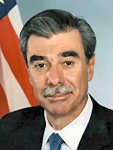 The White House’s early Christmas gift to BIS — the Export Enforcement Act of 2007 — was posted this afternoon on the Bureau of Industry and Security’s website. When we reported on it yesterday, only a somewhat misleading Reuter’s wire story was available.
The White House’s early Christmas gift to BIS — the Export Enforcement Act of 2007 — was posted this afternoon on the Bureau of Industry and Security’s website. When we reported on it yesterday, only a somewhat misleading Reuter’s wire story was available.
The Reuter’s story suggested that the maximum penalty for corporations for violations of the EAR would be increased under the act to $5 million or ten times the value of the exported good, whichever is greater. What the news item didn’t make clear was that this was an increase in the criminal penalties for violations. But not to worry. The proposed law also includes a whopping increase in the available civil penalties from $50,000 per violation to $500,000. Even if an exporter gets the standard 50 percent mitigation for a voluntary disclosure, a $250,000 penalty will still make exporters think twice about whether to disclose a violation or take its chance that the violation will never come to light.
The other significant change for exporters in the White House proposal is the provision of the bill which expands the list of criminal violations that can be a predicate for a denial of export privileges. It’s an interesting mishmash of provisions. A denial can be premised, for example, on a threat to use a heat seeking missile (18 U.S.C. § 2332g) but not on actually blowing up an airport (18 U.S.C. § 2332g)
The White House export proposal also reauthorizes the Export Administration Act for another five years.
Personally I think the chance of getting this legislation through the current Congress is remote, so I don’t think anybody should be staying up nights fretting about increased export penalties.
 Permalink
Permalink
Copyright © 2007 Clif Burns. All Rights Reserved.
(No republication, syndication or use permitted without my consent.)

 Posted by
Posted by  Category:
Category: 

